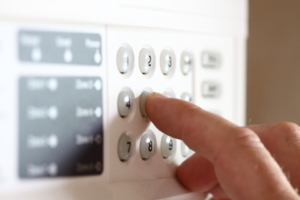False Alarms are costly
Unfortunately, cheaper, older security motion detectors can’t distinguish between a 150 pound man and a squirrel or even some papers blowing around. This causes police and firefighters to respond to false alarms. False alarms caused by the elements or animals are common (in the millions each year) and occur with business as well as residential systems.
 On average, a police officer uses 20-40 minutes to respond to an alarm. Multiply that out by millions of false alarms. This problem drains resources.
On average, a police officer uses 20-40 minutes to respond to an alarm. Multiply that out by millions of false alarms. This problem drains resources.
The Drain
In the U.S., 94-95 percent of police responses to burglar alarms are false. The cost comes to $30-$95 per incident–$1.8 billion total in the year 2000, says the Center for Competitive Government at Temple University. Some of this money goes towards preventing and remedying wear and tear on first responders’ vehicular equipment.
Wind, papers and animals aren’t the only problem; prank or ridiculous 9-1-1 calls also factor in, and so do carelessness, mistakes and even frightened but aggressive homeowners who mistake first responders for intruders.
Whopping Fines
The moment someone realizes an alarm was tripped accidentally, they should notify the police and their alarm company to cancel the response. Residents and business owners can be fined for false alarms—three and a row can cost over $300 in some areas. Fees vary by location; a first time violation may cost $50. Good hard fines will sink in deeper and motivate system owners to take measures to reduce false triggers.
Solutions
- A system that triggers a call to the homeowner or business owner’s mobile phone first. If there’s no answer it goes to the home phone. If there’s no answer it goes to the police.
- Having a home security system with security cameras allows the homeowner to quickly check on the home via their mobile to see if there is an actual problem.
- The alarm system should be thoroughly re-evaluated by the company to make sure that a glitch isn’t responsible for at least some of the false triggers.
- Homeowners should determine if there is enough time when entering or exiting the home when alarms are often triggered.
- Proactively plan when another person is entering the home such as guests, contractors, cleaners etc. Those “inexperienced” with your alarm are often the culprits.
- Homeowners must ingrain into themselves the habit of checking to see if the alarm is on before opening the door to check the thermometer outside, retrieve the newspaper or let the dog out in the middle of the night.
Robert Siciliano personal and home security specialist to BestHomeSecurityCompanys.com discussing burglar proofing your home on Fox Boston. Disclosures.


























